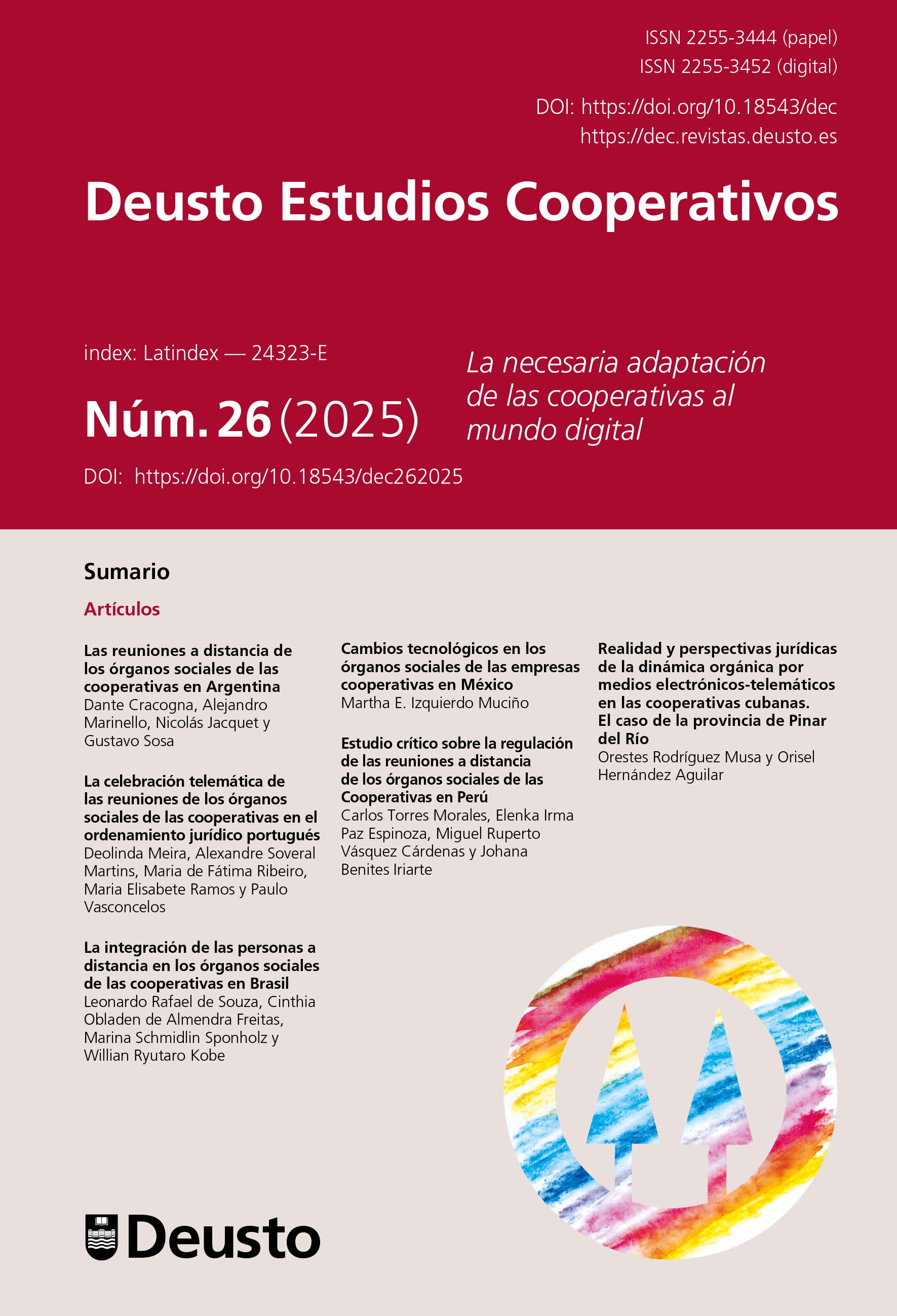Critical study on the regulation of remote meetings of the governing bodies of cooperatives in Peru
Abstract
This critical study analyses the regulatory and practical evolution of remote meetings in Peruvian cooperatives. It starts from a context characterized by legal loopholes in the General Law on Cooperatives (1981) and the absence of regulations establishing clear rules on remote meetings, sessions and voting. In this scenario, the statutes of each cooperative took on a supplementary role, generating disparate responses between those that allowed the use of electronic means and those that remained in traditional formats. The COVID-19 pandemic prompted temporary regulatory changes through Laws 31029 and 31194, which enabled virtual meetings, facilitating the adaptation of cooperatives through digital platforms, albeit with technological and training limitations. Subsequently, Law 32221 (2024) introduced a structural change by expressly recognizing face-to-face, remote and blended meetings as valid modalities for all cooperative governing bodies, thus consolidating a modern and flexible framework. The analysis shows significant progress in savings and credit cooperatives (COOPAC), which made better use of digital media, while agricultural cooperatives face greater obstacles due to the technological, economic and cultural divide in rural areas. It concludes that regulatory modernization is a significant step forward, although challenges remain in relation to digital training, internet access and the inclusion of all members.
Received: 4 July 2025
Accepted: 24 September 2025
Downloads
Copyright (c) 2025 University of Deusto

This work is licensed under a Creative Commons Attribution-NonCommercial 4.0 International License.
The authors, by submitting their manuscripts to the Deusto Estudios Cooperativos (DEC), accept the conditions listed below on copyright and undertake to comply with them. They do not sign any document of assignment of rights to the Publisher.
1. Authorship: The author must be the sole creator of the work or legally acting on behalf of and with the full agreement of all the authors.
2. Copyright and Code of conduct:
a) Authors warrant that their work is original; has not been previously copyrighted or published in any form; is not under consideration for publication elsewhere; its submission and publication do not violate the Ethical Guidelines of DEC and any codes (of conduct), laws or any rights of any third party; and no publication payment by the Publisher (University of Deusto) is required.
b) Authors grant to the Publisher the worldwide, sub-licensable, and royalty-free right to exploit the work in all forms and media of expression, now known or developed in the future, for educational and scholarly purposes.
c) Authors retain the right to present, display, distribute, develop, and republish their work to progress their scientific career provided the original publication source (DEC) is properly acknowledged.
d) Authors warrant that no permissions or licences of any kind have been granted or will be granted that might infringe the rights granted to the Publisher.


3.jpg)
3.jpg)







